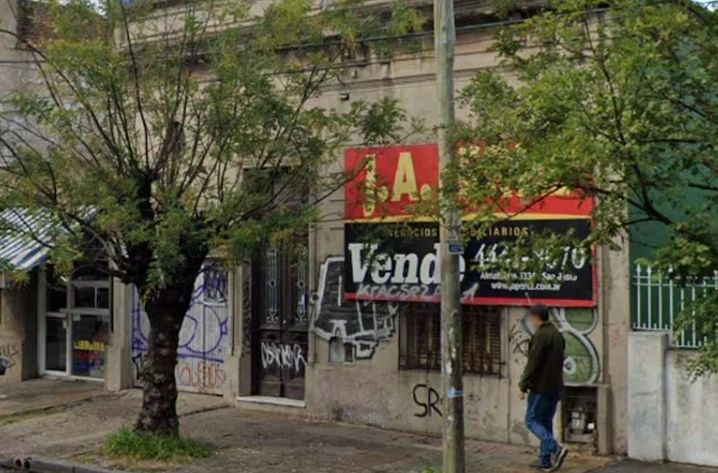BuySellBA
Administrator
What are the hidden costs when buying a property? - La Nacion Propiedades

Source:

 www.lanacion.com.ar
www.lanacion.com.ar
August 22, 2025
Between taxes, fees and charges, you should know that the total cost of the transaction will always exceed the price you are paying for the property.

Buying a property is not only paying its price but also the taxes, fees and charges involved in a real estate transaction.Shutterstock - Shutterstock
Unlike any other asset, acquiring a property is considerably more complex. In addition to involving a large sum of money, there are often "hidden" expenses that can skew the original accounts and calculations.
Taxes and fees, notary and registry fees, appraisals, professional fees, moving costs, and even renovations and repairs to the purchased property are some of the most common expenses that are worth considering.
As is well known, to formalize the acquisition of a property, it must be registered. And here are the first costs that many are unaware of. The buyer, for example, must pay the Stamp Tax, equivalent to 1.75% of the property price recorded in the deed , although it is reduced if it is a single-family home . There is also the registration fee, which is paid to register the property in the Real Estate Property Registry (RPI), which today can be as little as 0.3%.
Regarding professional fees, on the one hand, there are those associated with the notary's deed registration process, which typically range between 1% and 2% of the property's value. On the other hand, there are those associated with the real estate agency, which typically charges a commission of between 3% and 4% of the acquired property . The buyer must also pay the notary's contribution, an additional cost paid to the notary and which tends to be 0.1% at most.

Hawaii is one of the most expensive states in the country to buy a home.Freepik
So far, these are the hidden costs inherent to any real estate transaction that buyers must face . But in times of mortgage credit expansion, it's also good to know that when analyzing which loan to take out, it's key to look at each bank's Total Financial Cost (TFC), as it allows you to determine the real value of the loan. The TFC includes all the fees associated with the transaction; that is, in addition to the Annual Nominal Rate (ANR), it also considers other expenses such as insurance, origination and credit appraisal fees, VAT on interest, and fees and taxes associated with obtaining the loan.
Beyond taxes and fees, every buyer should also consider other issues. Moving costs , although obvious, are not insignificant. They depend, naturally, on the volume of items needed to be moved and the distance and time involved.

When buying an old or dilapidated house, you should consider the costs of renovation. Google Maps
And then there's the condition of the acquired property . Two situations arise here. One is the renovations or improvements the new owner wants to make to the property. While these are their decision, when choosing a property, it's a good idea to evaluate which of these are necessary or desirable. In addition, there are some essential repair or fix costs , as they affect the property's habitability. In these cases, one alternative is to estimate these expenses in order to negotiate (and reduce) the selling price.
For many, purchasing a property is one of the most anticipated moments. Therefore, knowing all the costs and procedures involved is essential so that this moment of joy isn't marred by any "surprises."
www.buysellba.com
Source:
¿Cuáles son los gastos ocultos al comprar una propiedad?
Entre impuestos, tasas y honorarios, hay que saber que el costo total de la operación siempre va a exceder el precio que se está pagando por el inmueble
August 22, 2025
Between taxes, fees and charges, you should know that the total cost of the transaction will always exceed the price you are paying for the property.

Buying a property is not only paying its price but also the taxes, fees and charges involved in a real estate transaction.Shutterstock - Shutterstock
Unlike any other asset, acquiring a property is considerably more complex. In addition to involving a large sum of money, there are often "hidden" expenses that can skew the original accounts and calculations.
Taxes and fees, notary and registry fees, appraisals, professional fees, moving costs, and even renovations and repairs to the purchased property are some of the most common expenses that are worth considering.
As is well known, to formalize the acquisition of a property, it must be registered. And here are the first costs that many are unaware of. The buyer, for example, must pay the Stamp Tax, equivalent to 1.75% of the property price recorded in the deed , although it is reduced if it is a single-family home . There is also the registration fee, which is paid to register the property in the Real Estate Property Registry (RPI), which today can be as little as 0.3%.
Regarding professional fees, on the one hand, there are those associated with the notary's deed registration process, which typically range between 1% and 2% of the property's value. On the other hand, there are those associated with the real estate agency, which typically charges a commission of between 3% and 4% of the acquired property . The buyer must also pay the notary's contribution, an additional cost paid to the notary and which tends to be 0.1% at most.

Hawaii is one of the most expensive states in the country to buy a home.Freepik
So far, these are the hidden costs inherent to any real estate transaction that buyers must face . But in times of mortgage credit expansion, it's also good to know that when analyzing which loan to take out, it's key to look at each bank's Total Financial Cost (TFC), as it allows you to determine the real value of the loan. The TFC includes all the fees associated with the transaction; that is, in addition to the Annual Nominal Rate (ANR), it also considers other expenses such as insurance, origination and credit appraisal fees, VAT on interest, and fees and taxes associated with obtaining the loan.
Beyond taxes and fees, every buyer should also consider other issues. Moving costs , although obvious, are not insignificant. They depend, naturally, on the volume of items needed to be moved and the distance and time involved.

When buying an old or dilapidated house, you should consider the costs of renovation. Google Maps
And then there's the condition of the acquired property . Two situations arise here. One is the renovations or improvements the new owner wants to make to the property. While these are their decision, when choosing a property, it's a good idea to evaluate which of these are necessary or desirable. In addition, there are some essential repair or fix costs , as they affect the property's habitability. In these cases, one alternative is to estimate these expenses in order to negotiate (and reduce) the selling price.
For many, purchasing a property is one of the most anticipated moments. Therefore, knowing all the costs and procedures involved is essential so that this moment of joy isn't marred by any "surprises."
www.buysellba.com

